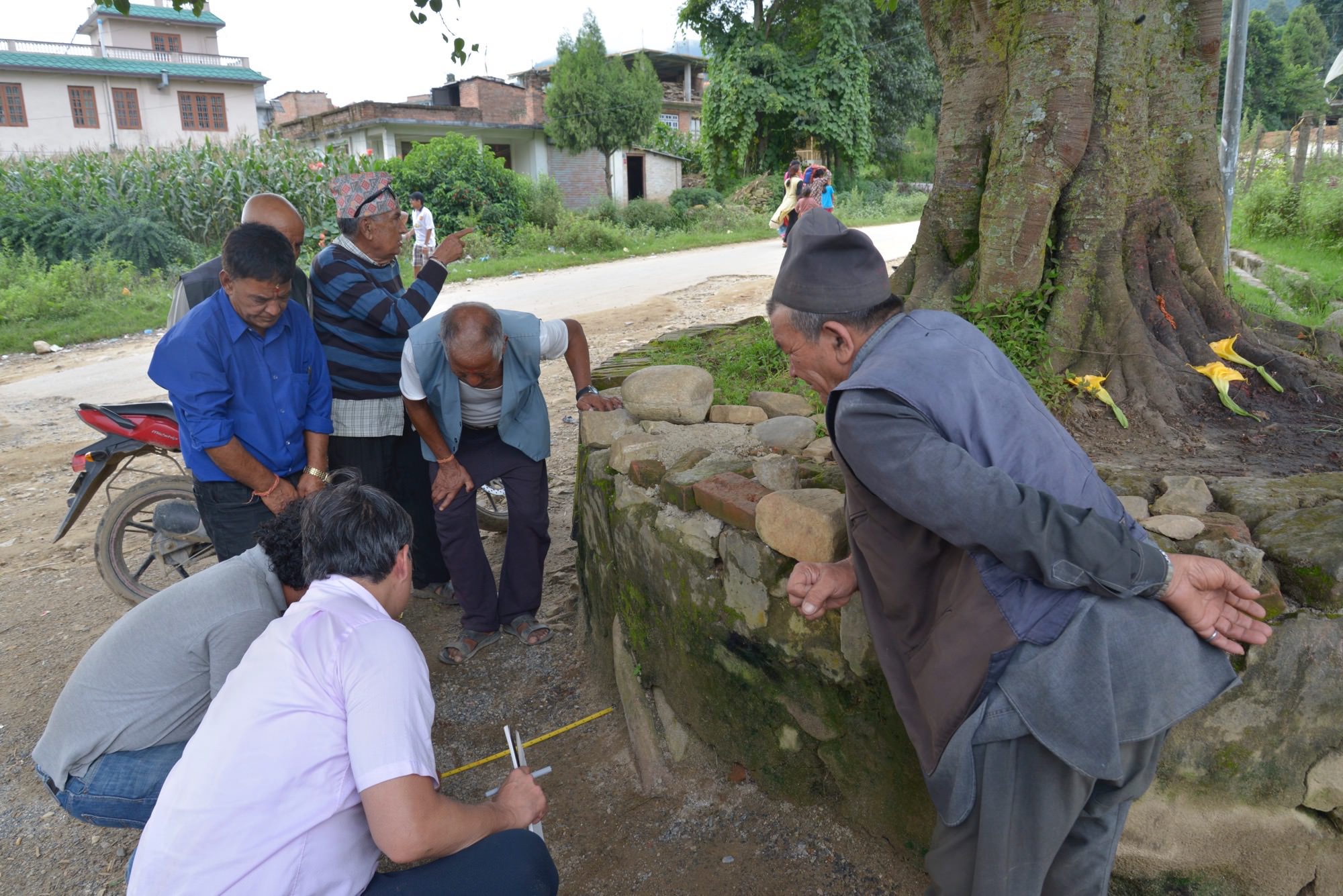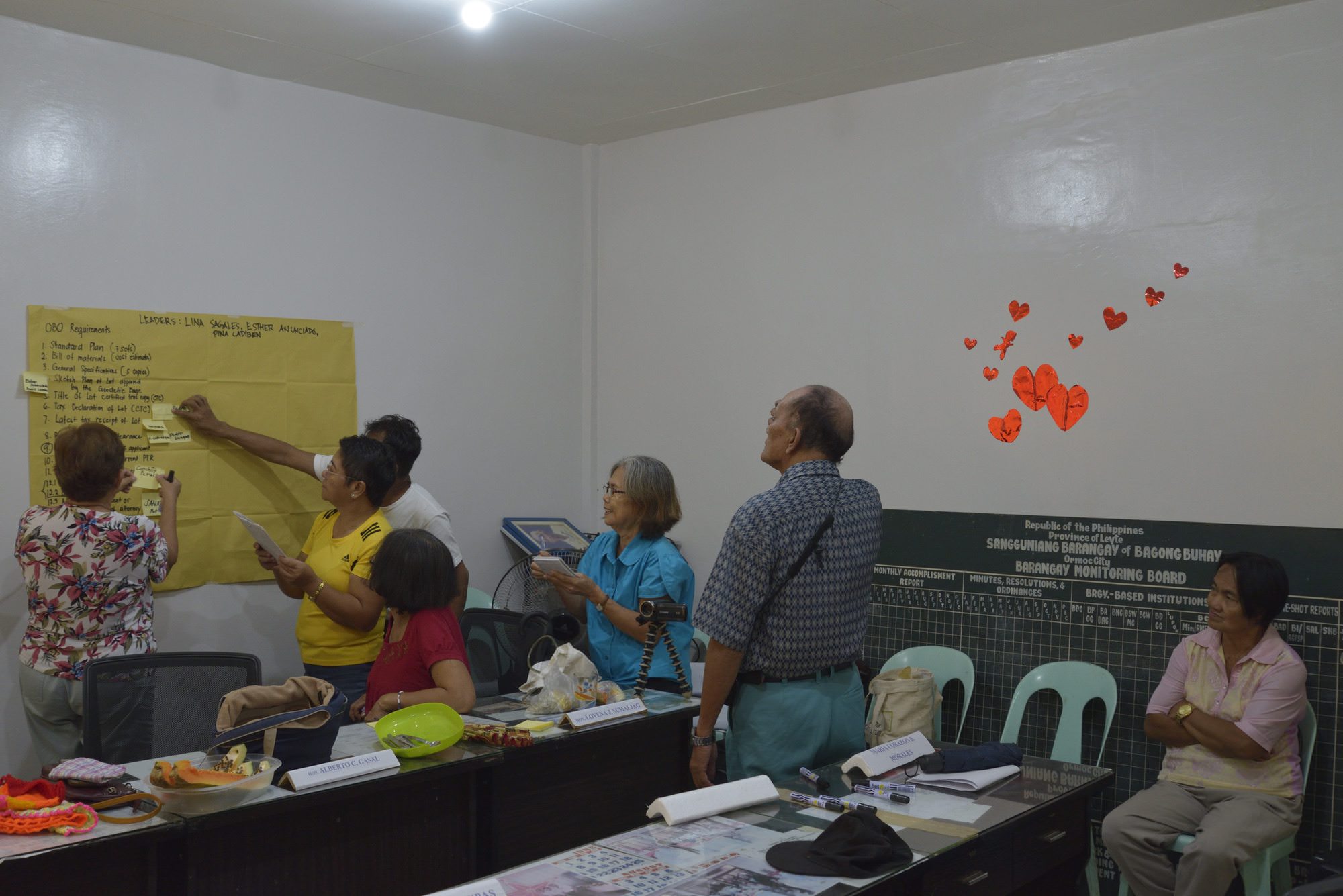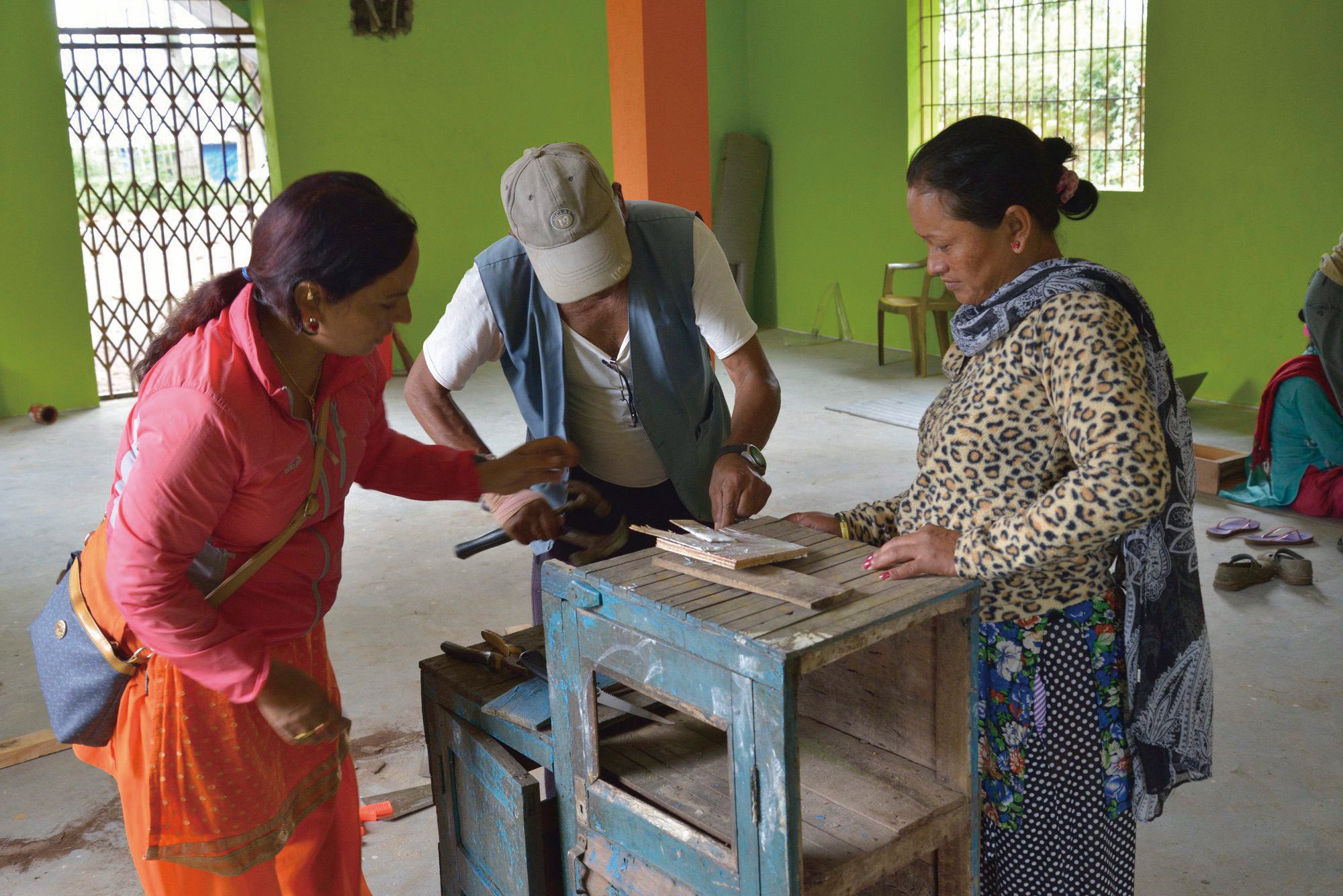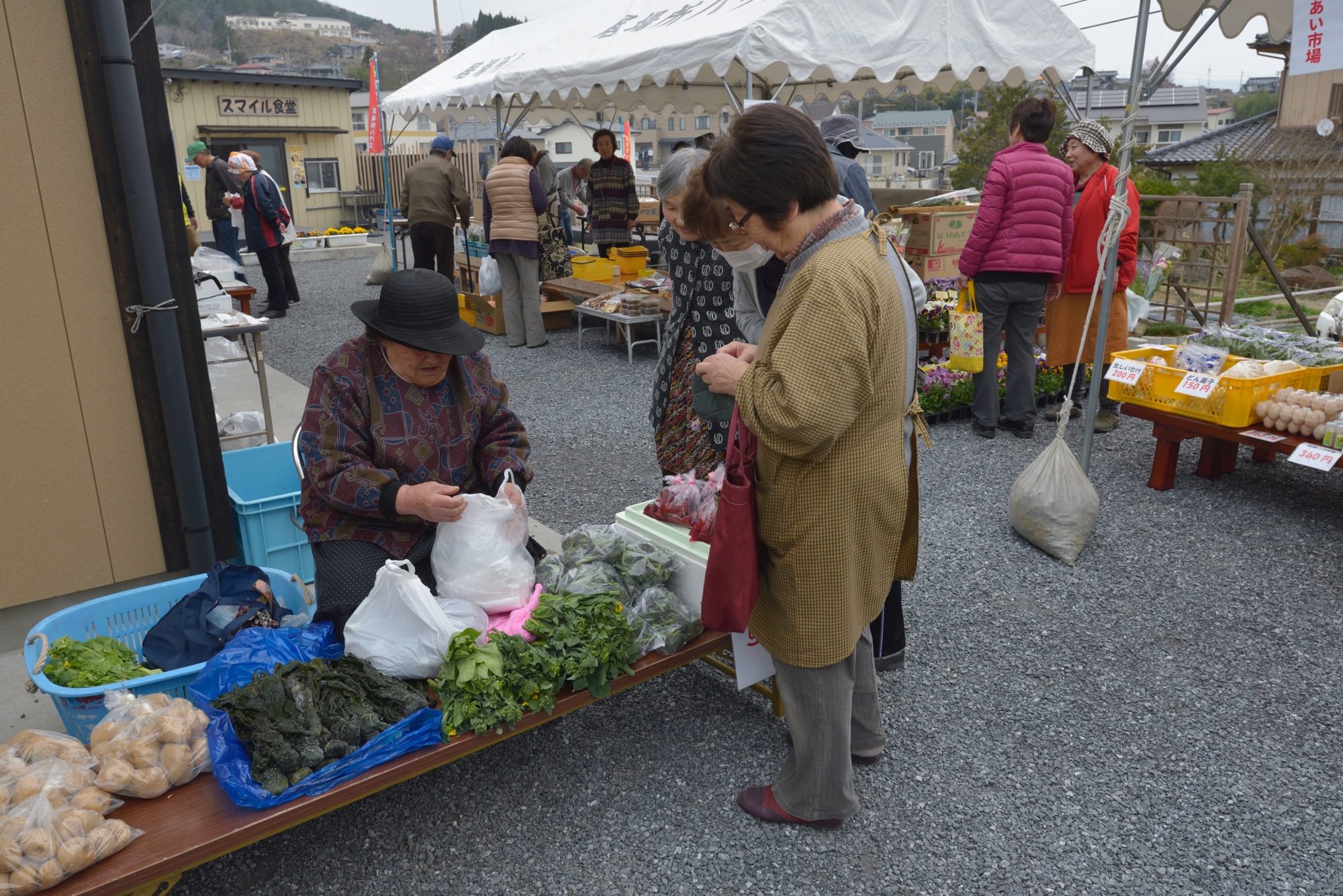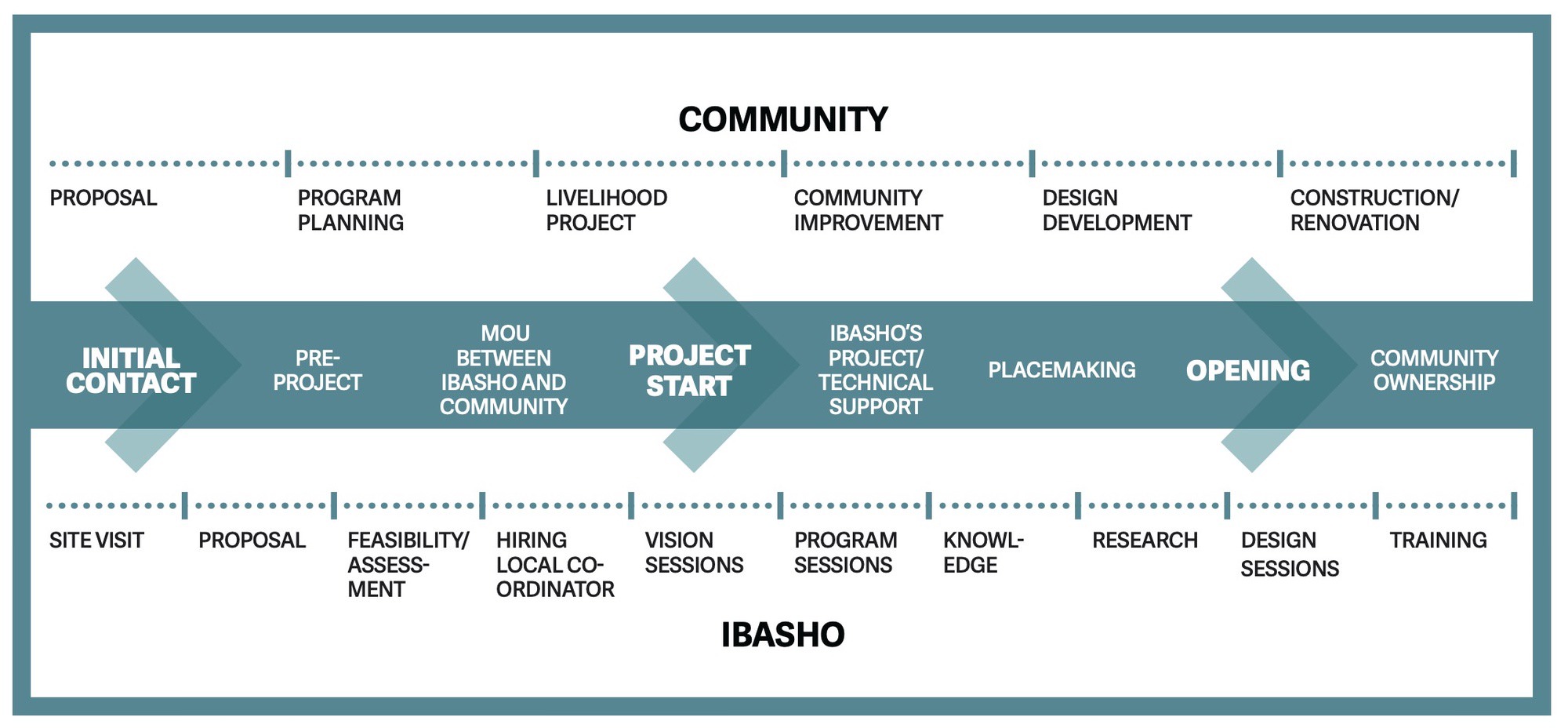Ibasho’s Project Goals
Ibasho’s goal is to create a shared future for elders across the globe, in which aging is something not to fear but to enjoy as a respected and valued member of a community. The four goals Ibasho envisions achieving with elders are:
- Change the narrative about aging through placemaking
- Enable elders to take leadership roles in their communities
- Foster multigenerational interactions
- Create environmentally, socially and economically sustainable communities
The Ibasho Process
Community elders lead each Ibasho project. The elders are supported by an Ibasho project team, which provides technical assistance in areas such as capacity-building, elder empowerment, operation, program, and architectural design. Their work together is a collaboration process.
Ibasho’s implementation process, which was developed based on lessons learned from the Ibasho projects in Japan, Philippines and Nepal, consists of five phases:
- Pre-project exploration by the Ibasho project team
- Creating a shared understanding between Ibasho and the community
- Providing technical support to the elders
- Assisting the elders in placemaking
- Phasing out the project team’s input as the community takes ownership
Ibasho Projects
The first Ibasho project was founded in Japan in 2012, after the tsunami during the Great East Japan Earthquake of 2011. It includes an elder-created and managed community hub, a café, a vegetable garden, a farmers’ market, a ramen noodle shop, a daycare, an evacuation center, and a community resource center in which elders teach cultural traditions to younger people. The Ibasho project was replicated in Nepal after the 2015 Gorkha earthquake, and in the Philippines after typhoon Yolanda in 2014. This section introduces the process and outcomes of the Ibasho projects in those two countries.


